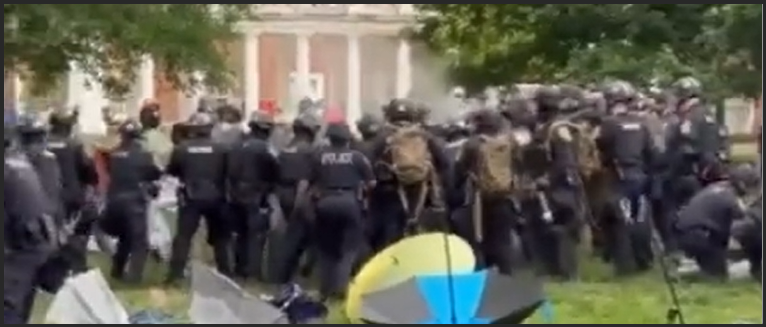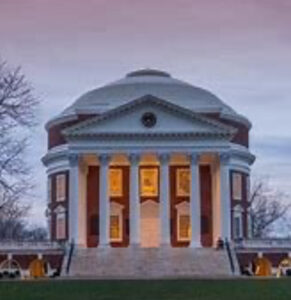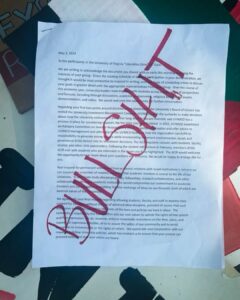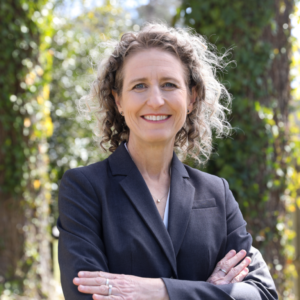
President Jim Ryan during virtual Town Hall
by James A. Bacon
The University of Virginia called in the Virginia State Police to disperse “UVA Encampment for Gaza” protesters because they feared the demonstration was spiraling out of control, said President Jim Ryan, University Police Chief Tim Longo, and other University leaders in a virtual town hall early this afternoon.
Some protesters had tried to smuggle in wooden structures that could be used as barricades to fortify the encampment, as seen at pro-Palestinian demonstrations at other universities. Although that effort was thwarted, law enforcement authorities learned that four individuals associated with previous Charlottesville events “that resulted in violence” had entered the so-called liberation zone. Meanwhile, organizers were using social media to appeal to more outsiders to join them, and the numbers were growing.
Ryan said he acted before more outsiders joined, the encampment became more entrenched, and the potential for violence increased. “If we didn’t act, would we be faced with 50 tents and 20 outsiders?” he said. “Where would we be then?”
Ryan, Longo, and Provost Ian Baucom stated repeatedly that protesters spurned repeated efforts to engage in dialogue. The limited communications that did occur were relayed through faculty members. University officials were at pains to contrast the anarchist protest with other pro-Palestinian demonstrations organized by student groups, in compliance with university guidelines. Continue reading





 by Kerry Dougherty
by Kerry Dougherty 
 by Jon Baliles
by Jon Baliles

 by Jon Baliles
by Jon Baliles

